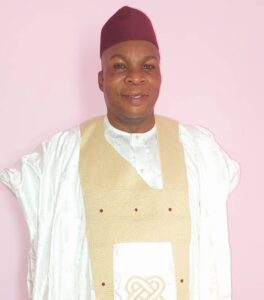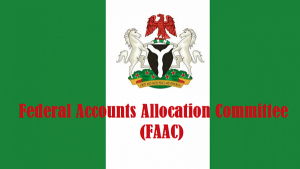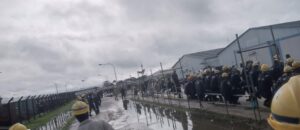By Olayinka Olaiya
Sixty-nine years ago, Nigeria witnessed some riots in Kano, mainly between Northerners and Southerners, the latter further to be classified as Easterners and Westerners from the respectively named regions of Eastern Region and Western Region. The crisis was directly related to the first formal motion for Nigeria’s independence proposed in the year 1956 and moved by Chief Anthony Eromosele Enahoro, a democracy and anti-colonial activist. A northern leader, Alhaji Tanko Yakasai, will later explain in his book “Leadership Question and the Issue of Nigeria’s National Unity” that the huge gap in education was one of the problems the North feared could lead to their domination in the new nation by the other regions. As at 1956, he claimed the North had only one graduate in the person of Russel Aliyu Barau Dikko, which is quite arguable as the first widely reported graduate from the Northern Region was Abdulaziz Atta from Ebira land. Atta graduated from Balliol College, Oxford, England in 1947. Generally speaking on education, there have been widely read and educated men in Northern Nigeria before the British. In fact, the North already had reading and writing using Arabic alphabets to communicate in local languages like the popular Hausa in what is known as Ajamiyya or Ajami (Arabic for foreign or strange).
The North made claims of education and human resources deficiency. There were clearly deeper politics behind the foot dragging. From the onset, the Eastern Region apparently picked up well in business, while the Western Region was already dominant in the civil service with the added privilege of hosting the Federal Capital at Lagos. No amount of reassurance could convince the North. There had to be a way to ensure they were at par with the other regions.
With 75% of the landmass and 55% of the population at the time of independence, there was a need to avoid slavery in their own land.
In a few years, in 1957, a politician from the Western Region, Chief Samuel Ladoke Akintola, moved the motion again for Nigeria to become independent in 1959 but was turned down by the British, thickening the plot and leading to insinuations that the British were in cahoots with the leaders of the Northern Region. Eventually, the following year, 1958, a prominent lawyer turned politician, Remi Fani-Kayode, Q.C., successfully moved the motion for Nigeria’s independence that passed in parliament and got approval for April 1960. This date was later modified by Abubakar Tafawa Balewa, the future first Prime Minister of Nigeria, to October 1960.
What those opposed to Independence in 1956 suddenly amassed in human, academic, and material resources within four years remains one of Nigeria’s historical mysteries. What mattered was that we got it when everyone was happy, regardless of whether they were prepared or not.
Those who weren’t ready for independence were not the illiterate Nigerians from whichever region; they were not the poor, hardworking folks or the nation building civil servants. Nor were the politicians who took over from the British colonialists and immediately went about creating a great nation, although with delicate and deadly politics. Those who weren’t ready were those who were rushed unprepared into the corridors of power and seats of leadership across the nation, the young men raised through meteoric careers in politics, administration, and the military, reaching dizzying heights in their early and mid-twenties.
“Success is a poor teacher. We learn the most about ourselves when we fail, so don’t be afraid of failing. Failing is part of the process of success. You cannot have success without failure.” -Robert T. Kiyosaki
Nigerian leaders managed to paddle the new nation’s canoe through shark-infested stormy waters and, believing they could handle the turbulence, asked their young Queen, thirty-seven at the time, to take her hands off her biggest African asset. Three-year-old Nigeria was running and confident enough to be called the Federal Republic of Nigeria.
Then, cracks started appearing, and in about as many more years, a group of young military officers hijacked the ship and rammed her on an iceberg. Nigerians were so stunned that not only couldn’t the nation recover but had been unable to completely resolve and fix the damage done in almost six decades.
It’s important to remember that Nigeria became a nation in 1914, not 1960, and to think beyond even that amalgamation year to centuries of neighbouring states, nations, and tribes before colonization. There have been countless conflicts between and within the different nations, kingdoms, empires, and the like in these regions. Some were far more complicated than whatever Nigeria is facing now, others less complicated but more frequent.
Unfortunately, we are a people who see problems but rarely propose or try solutions, even after exhausting all negative options, including a devastating, self-destructive civil war that the most impacted people are still remembering today.
Indeed, regions, ethnic groups, or tribes agitating for independence today only have Nigeria as cosmetics to cover their own uglier underbelly, which usually spills out the moment they are left alone, as has been witnessed elsewhere across Africa, sometimes forcing former blamed masters to intervene to prevent total annihilation of populations, as Sudan had to do in South Sudan. None of Nigeria’s superficial states, for instance, no matter how homogeneous, can boast of conclusive conflict resolution and perfect peaceful coexistence among their residents and communities. This is a strong sign of weak people building dysfunctional societies in a frail union full of recrimination and mutual suspicions, as it was at Independence.
As the saying goes, may Nigeria succeed.
God bless the Federal Republic of Nigeria with Unity and Faith, Peace and Progress.







